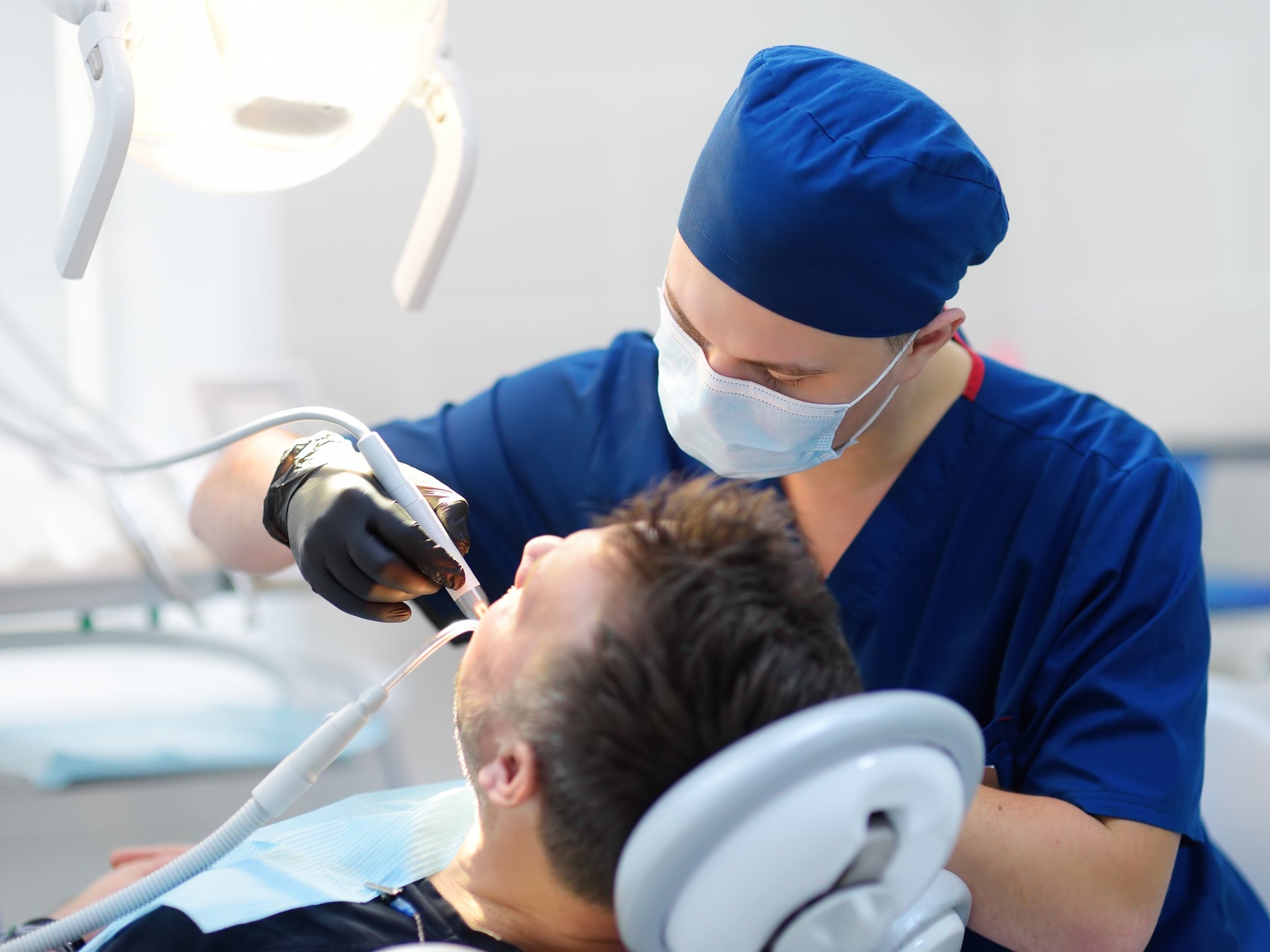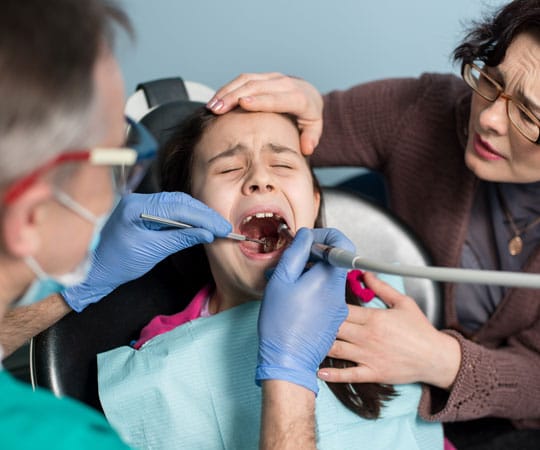Specialist Emergency Dentist Newport Services: Comprehensive Dental Care
Specialist Emergency Dentist Newport Services: Comprehensive Dental Care
Blog Article
Navigating Dental Emergency Situations: What to Do and Not to Do in Essential Situations
When faced with dental emergency situations, the capacity to respond appropriately can be essential in protecting against additional difficulties and ensuring the most effective feasible outcome. Knowing what steps to take and what activities to prevent can make a substantial distinction in vital circumstances including oral concerns (emergency dentist newport). From toothaches to knocked-out teeth, broken dental fillings, jaw injuries, and dental bleeding, each scenario demands a specific method that can affect both temporary and long-term dental health and wellness. Comprehending the do's and do n'ts in these defining moments can be the secret to protecting your dental wellness.
Immediate Actions for Toothaches
Salt water functions by helping to lower bacteria in the mouth, which can add to the pain and swelling associated with a tooth pain. It additionally assists to attract out any type of particles or pus that might be present, giving a relaxing impact on the irritated cells.
In addition to rinsing with seawater, non-prescription pain medications such as ibuprofen can be required to aid handle the discomfort. If the discomfort persists or aggravates, it is crucial to adhere to the recommended dose directions and seek advice from with a healthcare company. Prevent positioning aspirin directly on the tooth or periodontals, as this can result in chemical burns.
If the tooth pain lingers or is come with by various other symptoms such as fever, swelling, or difficulty breathing, look for punctual oral treatment to attend to the underlying source of the pain. Early intervention can assist avoid additionally complications and minimize pain.
Dealing With Knocked-Out Pearly Whites
When managing knocked-out teeth, prompt activity is critical to increase the chances of successful reimplantation. If a tooth is entirely knocked senseless, it is necessary to handle it effectively to protect its stability for reattachment. The primary step is to get the tooth by the crown (the white component) instead of the origin to avoid damaging the fragile tissues. It is very important not to touch or scrub the root surface as this can harm the cells required for reimplantation.

Prompt activity and proper handling of a knocked-out tooth can substantially affect the chances of effective reimplantation, so it is essential to act promptly and suitably in such circumstances.
Dealing With Broken Dental Fillings
Correct maintenance and regular oral check-ups are important for resolving damaged dental fillings immediately and guaranteeing the durability of your oral job. When a dental filling up breaks, it can reveal the internal layers of the tooth to bacteria, bring about prospective infections and further damage if left without anonymous treatment. It is important to call your dental expert immediately to schedule a consultation for repair service. if you experience a busted dental filling.
In the meanwhile, there are some actions you can take to take care of a busted oral filling at home. Over-the-counter dental cement can be made use of as a temporary step to cover the subjected filling and safeguard the tooth up until you can see your dental practitioner.
Remember that a broken dental filling needs to be dealt with immediately to stop issues and maintain the integrity of your tooth. Routine dental exams can assist identify and resolve any kind of concerns with your dental fillings prior to they escalate into more substantial troubles.

Handling Jaw Injuries
In cases of jaw injuries, swift and appropriate monitoring is essential to alleviate discomfort and stop additional complications. Jaw injuries can arise from different causes such as trauma, mishaps, or oral procedures. When faced with a suspected jaw injury, it is vital to seek immediate clinical interest from a health care expert or go to the emergency clinic.
In the interim before receiving specialist care, there are a couple of actions that can be taken to manage jaw injuries. Applying a chilly compress to the afflicted area can aid lower swelling and relieve pain. It is very important to stay clear of relocating the jaw excessively and to refrain from consuming chewy or tough foods that might aggravate the injury. In addition, non-prescription discomfort medication can be read this required to handle pain temporarily.
In addition, if there is bleeding related to the jaw injury, mild stress can be applied making use of a clean fabric to help control the bleeding. It is essential to keep in mind that these are temporary measures, and timely examination by a healthcare company is imperative to analyze the extent of the injury and figure out the ideal course of treatment - emergency dentist newport.
How to React To Oral Blood Loss
Adhering to the monitoring of jaw injuries, resolving dental blood loss without delay is important in guaranteeing appropriate care and recuperation. Dental blood loss can arise from numerous reasons, such as trauma, dental procedures, or underlying medical conditions. When confronted with oral blood loss, it is vital to continue to be tranquil and take prompt activity to regulate the scenario.
To react properly to dental bleeding, start by delicately washing your mouth with a light saltwater remedy to clean up the area and get rid of any type of blood clots. If the bleeding lingers or is serious, seek expert oral care quickly.

Final Thought
To conclude, it is crucial to act immediately and properly when confronted with dental emergency situations. Immediate actions for toothaches, taking Website care of knocked-out teeth, taking care of broken oral fillings, managing jaw injuries, and responding to dental bleeding are crucial steps to make certain correct treatment and avoid more issues. Remember to look for specialist assistance immediately to attend to any kind of dental emergency situation efficiently and efficiently.
From toothaches to knocked-out teeth, broken oral fillings, jaw injuries, and dental bleeding, each circumstance demands a certain approach that can affect both long-term and short-term dental wellness. If this is not possible, keep the tooth in a container of milk or the individual's saliva to keep it wet while seeking instant oral care.
Proper maintenance and routine dental exams are vital for dealing with damaged oral fillings immediately and guaranteeing the durability of your dental work. Non-prescription dental cement can be used as a short-term procedure to cover the subjected dental filling and shield the tooth until you can see your dental professional.
Immediate activities for toothaches, managing knocked-out teeth, dealing with damaged dental fillings, handling jaw injuries, and reacting to oral bleeding are vital actions to ensure proper care and avoid further complications.
Report this page